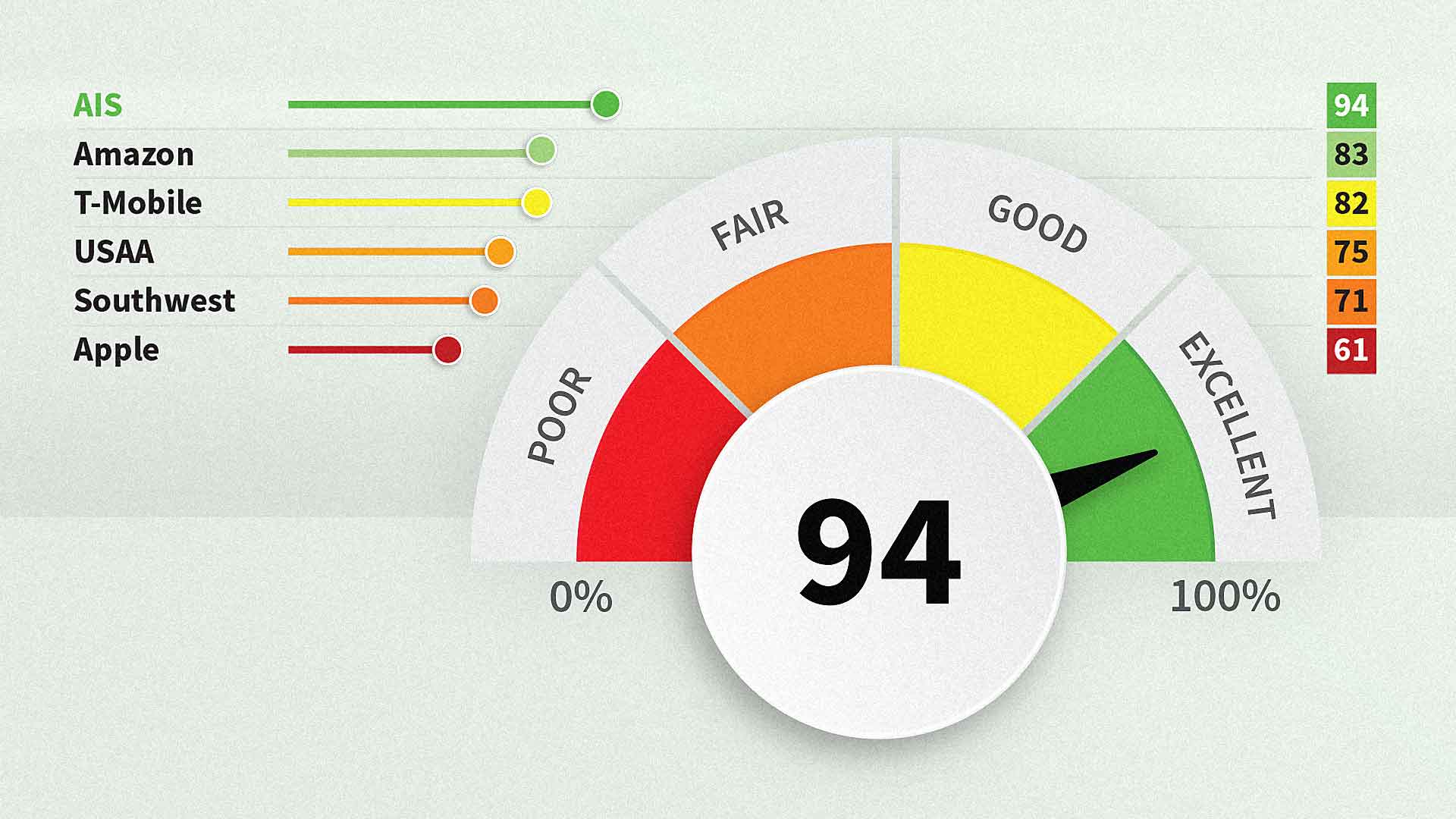Do Your Office Technology Partners Have a High Net Promoter Score?
February 18th, 2025 | 3 min. read

Can you say in advance whether your prospective office technology partners are committed to staying up-to-date on the latest updates and innovations? Are they able to provide you with the best possible products and the best possible service for your business?
If you have never heard of an NPS, read on and let us change the way that you make your technology purchasing decisions.
What Is a Net Promoter Score?
Simply put, a Net Promoter Score (NPS) is a metric to measure customer loyalty. A company with a high score typically has many satisfied customers willing to recommend their product or service.
Those with lower scores have more dissatisfied consumers and fewer people promoting their products and brands.
The data from which the score is calculated is created by asking a single question to customers through an independent third-party survey:
"How likely are you to recommend this company or product to a friend or colleague?"
Respondents rate their response from 1-10 (with 10 being 'Extremely Likely' and 1 being 'Not At All Likely'), and are broken up into three categories accordingly:
- If the score is 9-10, they are considered Promoters
- If the score is 7-8, they are Passives
- If the score is 6 or lower, they are Detractors
While the names are not particularly important, they represent fanatics about a company's products, those who like them well enough, and those who would instead leave them behind. This is how it’s calculated:
NPS = (Responses of "Extremely Likely" - Responses of "Not At All Likely") / Total Number Of Responses * 100
An NPS is calculated by subtracting the percentage of detractors from the percentage of promoters.
An organization will want its promoters to be at least five percent higher than its detractors and passives to be considered positive or good.
Organizations that are below this benchmark do not have many customers willing to recommend them, thus signaling significant room for improvement.
Companies that have maintained their high rankings can do so because they offer excellent products that keep customers so happy that they can imagine going out of their way to tell someone else how great they are.
Why Is it Important To Buy From Office Technology Partners with a High NPS?
Office technologies like printers, copiers, and scanners are essential business investments. They are expensive, but their user experiences can provide sizable productivity gains when reasonable or huge drops when they are challenging to use and prone to error.
When you choose an office technology vendor based on their NPS, you make an investment that will pay off. Don't make your decision solely on price.
Instead, consider how much time and money you'll save by choosing quality equipment that lasts longer than cheaper options and allows your workforce to act efficiently without mundane stressors such as copier jams or other technological faults.
These kinds of day-to-day frictions can build up in the workplace and cause considerable problems in the long run.
How To Find A Potential Office Technology Supplier's NPS
Though the importance of a Net Promoter Score should now be evident, both in evaluating a company's products and how they can save your employee's heartache (and labor hours!), how exactly do you find out what a company's NPS is?
While you can sign up for expensive services that attempt to aggregate NPS scores, the fact is that every office technology supplier uses no single service. Thus, there is no single NPS aggregator worth a subscription to.
Instead, the right choice is even simpler: ask.
Any time you receive a sales pitch, ask for the NPS. If you are curious about a new product you've seen, send their sales team an email asking for the NPS.
The Final Say: The Importance of a Net Promoter Score
If you're on the fence about leaving a current technology partner for newer pastures, see what their NPS is—perhaps it will confirm your suspicions that the rest of their clients are as unhappy as you!
Any company that offers a good product will be proud to tell you about its NPS score. Here at AIS, we shout our NPS score from the rooftops!
Since it is such a simple metric to calculate, there are no complicated spreadsheets that they need to show you or different survey methods you need to compare across technology suppliers. It really is the one-size-fits-all analysis tool that can help you judge a company instantly.
Make sure to contact us today to learn more about our products and offerings.
A true southerner from Atlanta, Georgia, Marissa has always had a strong passion for writing and storytelling. She moved out west in 2018 where she became an expert on all things business technology-related as the Content Producer at AIS. Coupled with her knowledge of SEO best practices, she's been integral in catapulting AIS to the digital forefront of the industry. In her free time, she enjoys sipping wine and hanging out with her rescue-dog, WIllow. Basically, she loves wine and dogs, but not whiny dogs.
Topics:



